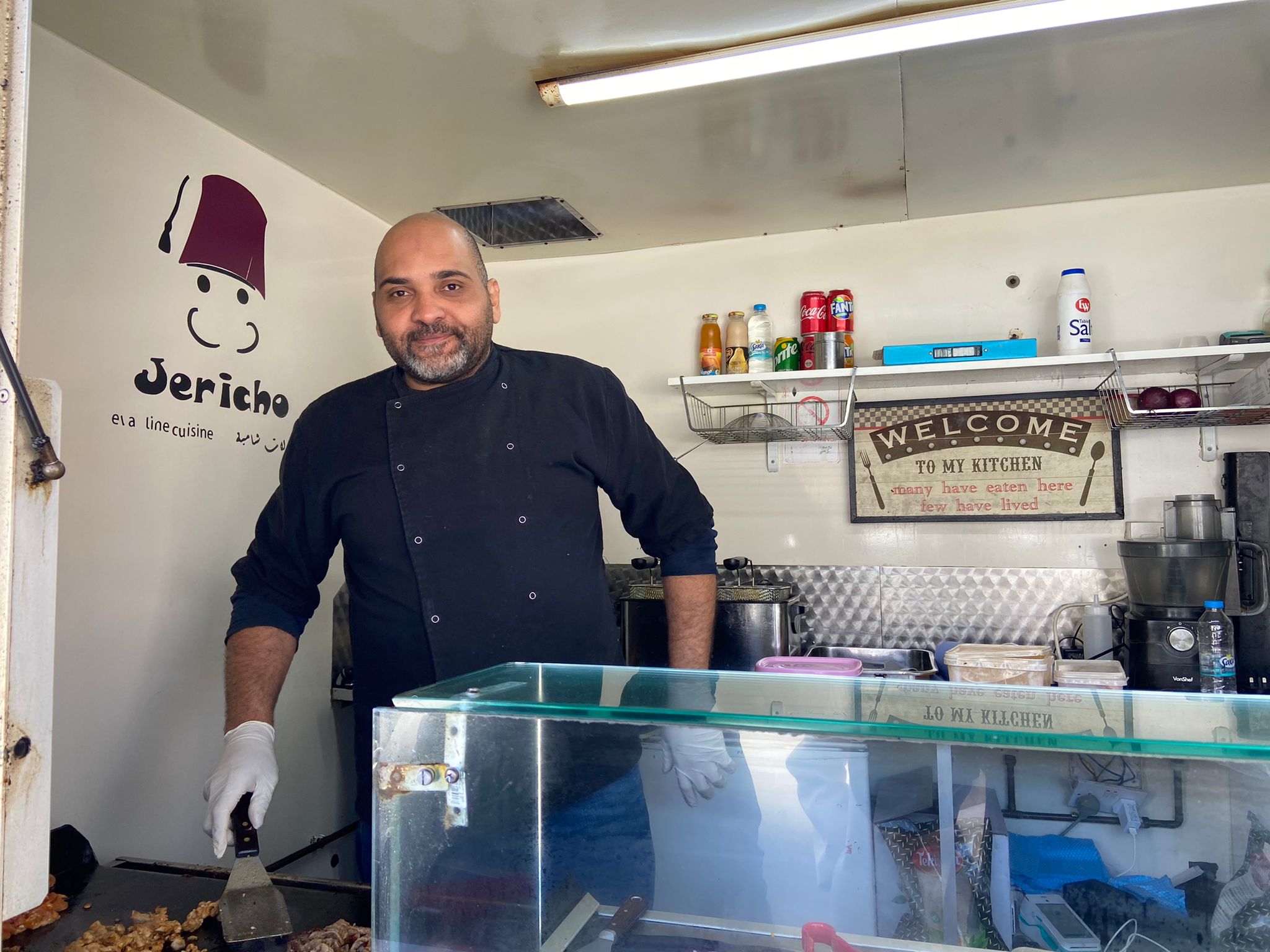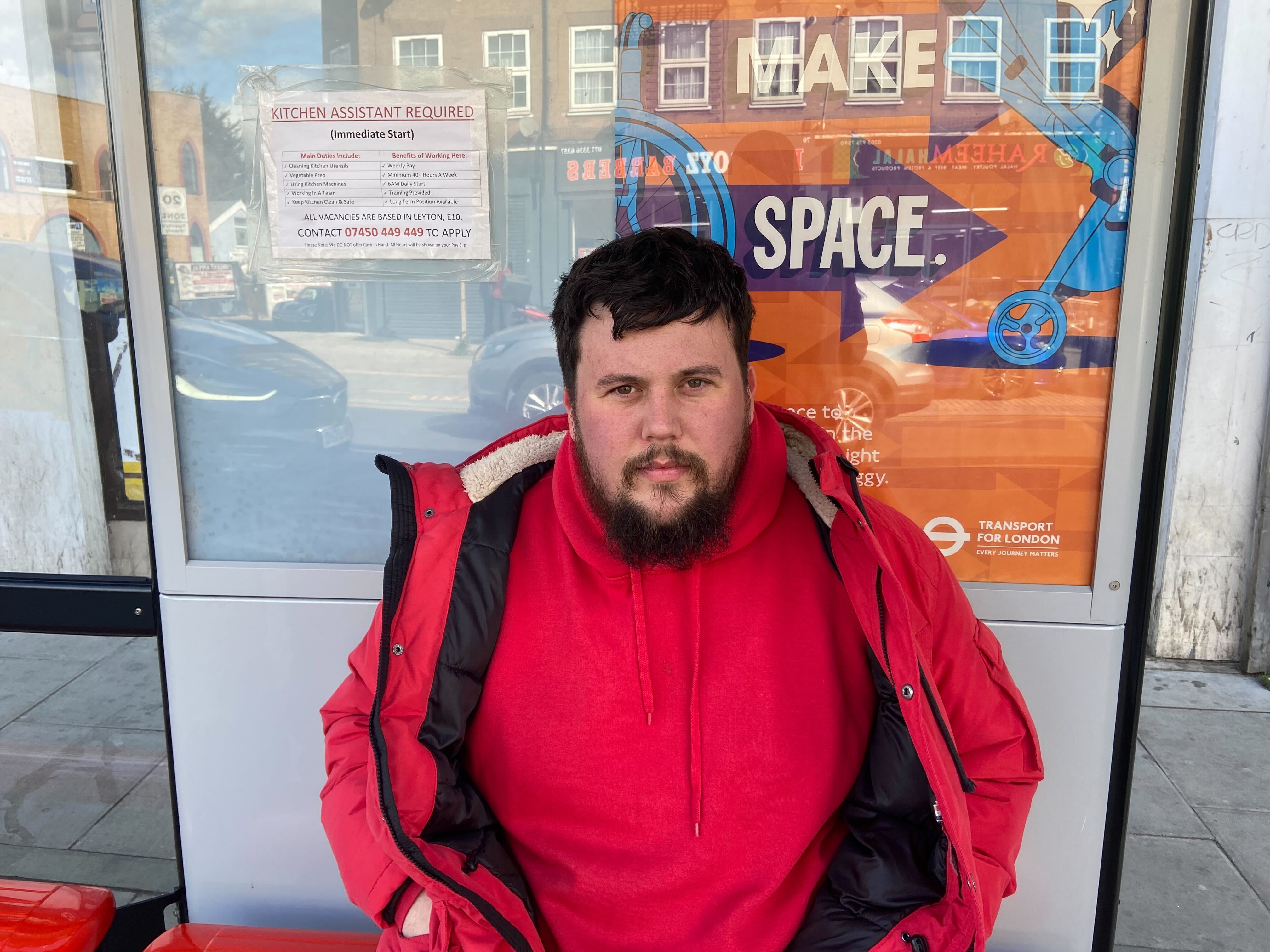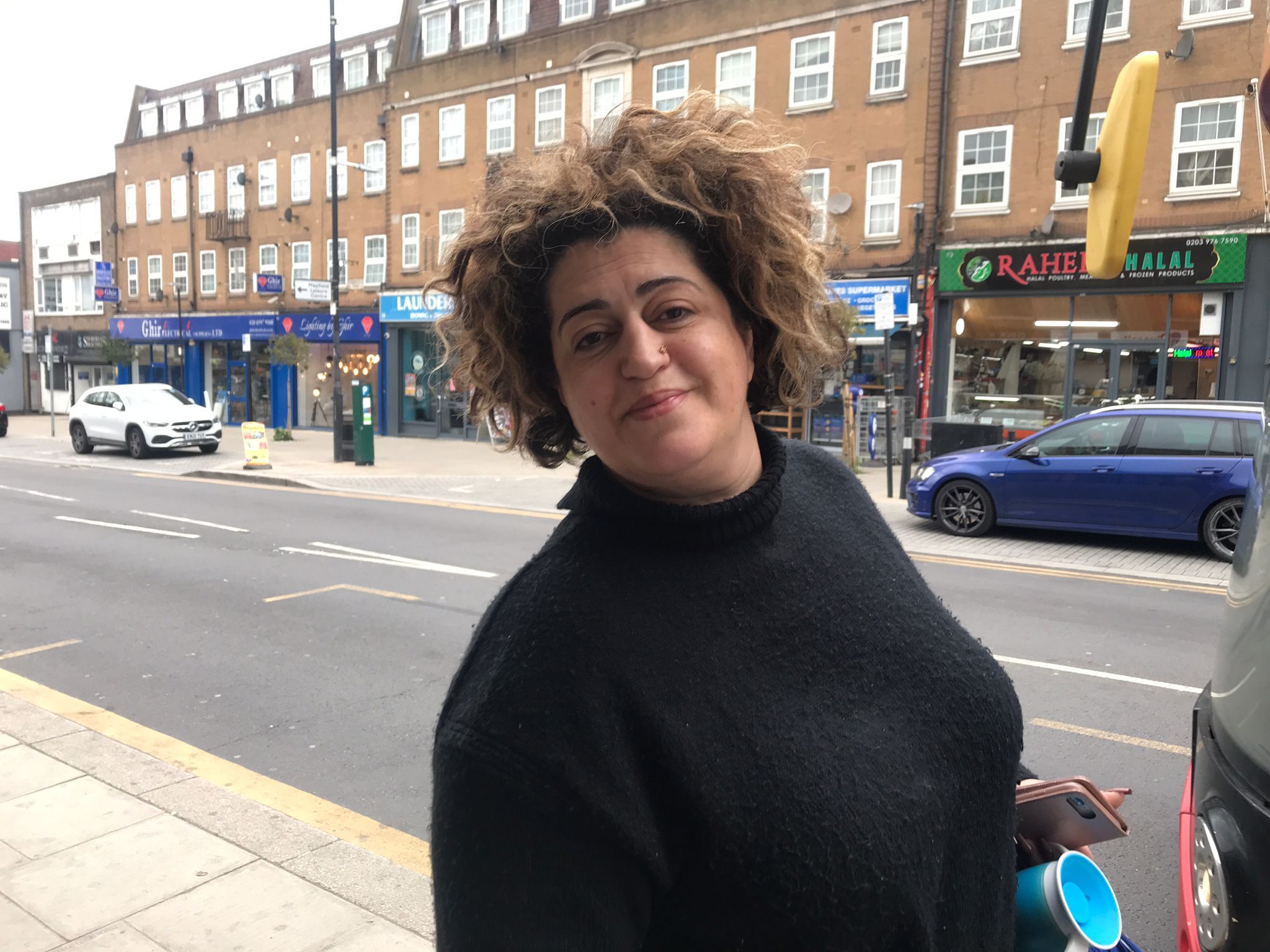‘How do we survive?’ Britons share fears of soaring bills on first day of energy bills hike
The energy cap has increased today for millions across the UK
UK families have been left questioning their survival amid the biggest drop in living standards since the 1950s.
It comes as 5 million households will be forced to spend at least 10 per cent of their budget on energy bills after Friday’s price cap hike, according to the latest analysis.
Business partners Yousef and Lyes, who only gave their first names said they were forced to dismiss one of their baristas as prices increase and the footfall into their east London cafe decreases.
“One cylinder of gas used to be £35 – now I get it for £40,” Yousef, who also owns a food truck, told The Independent.
“The chicken I used to get for £35 now it’s £50. It does hit everyone. I’ve been here three years and you feel for the people. People want something not expensive but it’s hard for us to keep that.
“How do we survive? It’s chaos.”

Ofgem, which regulates gas and electricity markets in Great Britain, announced on 3 February that the energy price cap – designed to prevent firms from making excessive profits – will increase for approximately 22 million customers from 1 April.
The regulator has calculated that the average household on default tariffs paying by direct debit will see a £693 increase to £1,971 per year for gas and electricity. There will be an increase of £708 from £1,309 to £2,017 a year for the average prepayment customer. Ofgem has said the increase is “driven by a record rise in global gas prices over the last six months”.
Mum of three Rifat Shakil said her bank account is in the red every month and is forced to borrow money from friends to make up the deficit.
“When you think about money on rent, electricity, and the extra burden of kids then what choice is there but to borrow?” the east Londoner said.
The 35-year-old is not working currently and depends on her husband who works in Tesco. “One person’s income, how can that balance everything?”
Ms Shakil has to sacrifice treats for her children to make ends meet.
“I know when I take them out my children will want to go to McDonald’s and eat outside, but we can’t afford that life anymore,” she said.
“Sometimes I just take them to Iceland and buy them all ice cream for £1 just so I can make them happy.
“The government should first think about how to fix the problems of earning before raising other bills.”

Harry Benhem, a 25-year-old school site manager, saw the cost of living crisis block his plans to move into a better home, after increasing gas prices meant he could no longer afford the rent payments.
“Meals are more expensive as we go out. Food is more expensive. My energy has doubled, it’s gone from £40 to £80 overnight,” Mr Benhem told The Independent.
“Now I need to find an extra £40. I’ll have to cut out everything just to get by. I can’t go out l have to buy bare basic food and drinks no treats no days out no meals no seeing friends unless it’s a walk over the park
“It’s very restrictive. Hopefully it’ll get better but I can’t see it going anywhere any time soon.”

In addition to rising energy bills, VAT has increased to 20 per cent while national insurance and council tax will also rise later this month, placing further pressure on struggling families.
Fernanda Rodrigues, a single mum of three from east London said the government doesn’t care about the poorest people in society and fears she may have to return to Portgual if things continue to worsen.
“Everyone knows it’s bad. It’s too much,” Ms Rodrigues said.

“We have to find a way to survive. I can’t be in a situation where I don’t have food for my children. I can’t suffer in the UK, I have three children.”
Meanwhile, barbershop owner Bablu, who only gave his first name, said “there is no happiness left” after various price hikes.
“Everything is up, rent is up, electric is up,” the 43-year-old said. “Business has gone down, there's too much stress here.”
When asked how he is managing with rising food costs, he said: “Sometimes I eat, sometimes I don’t.”
He added that he cannot afford to go to the food bank because he doesn't have anyone to cover for him and doesn't want to risk missing customers.

Despite criticism of his spring statement from the opposition, charities and some Tory MPs, Rish Sunak told the BBC’s Newscast podcast on Thursday that he remained “confident in what we’ve done” to support people struggling with rising bills.
Mr Sunak said: “I know it’s tough for people. We’re facing a very difficult situation with the price of things going up and I want to do what we can to ameliorate some of that – but I’m also honest with people that we can’t ameliorate all of it, sadly.”
Mr Sunak admitted some of the moves he has made are “certainly unpopular”, adding: “But they’re responsible and will help us in the long-term and I’m not going to deviate from that just for some short-term popularity gain.”
Join our commenting forum
Join thought-provoking conversations, follow other Independent readers and see their replies
Comments
Bookmark popover
Removed from bookmarks